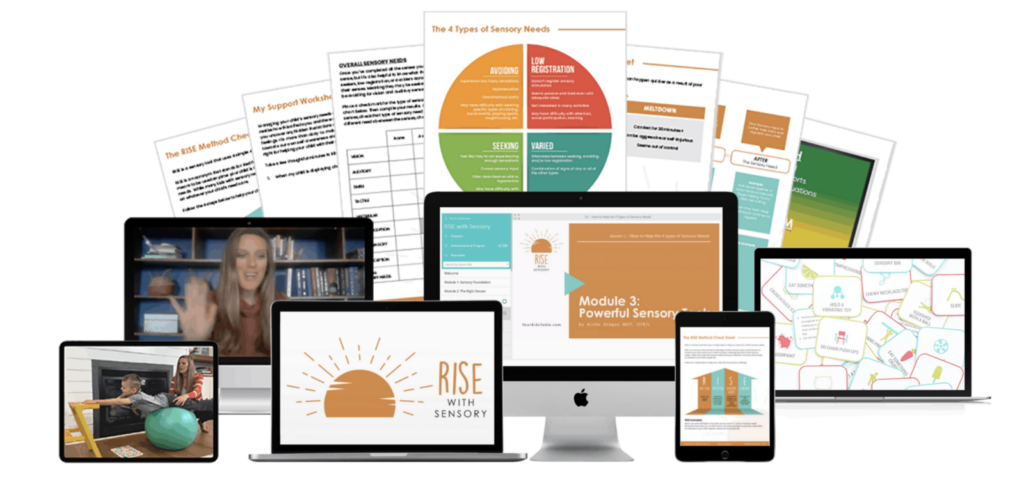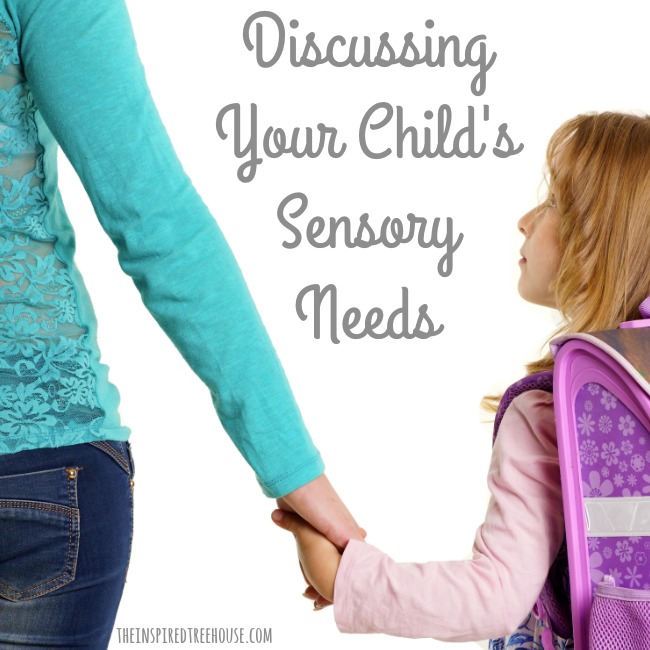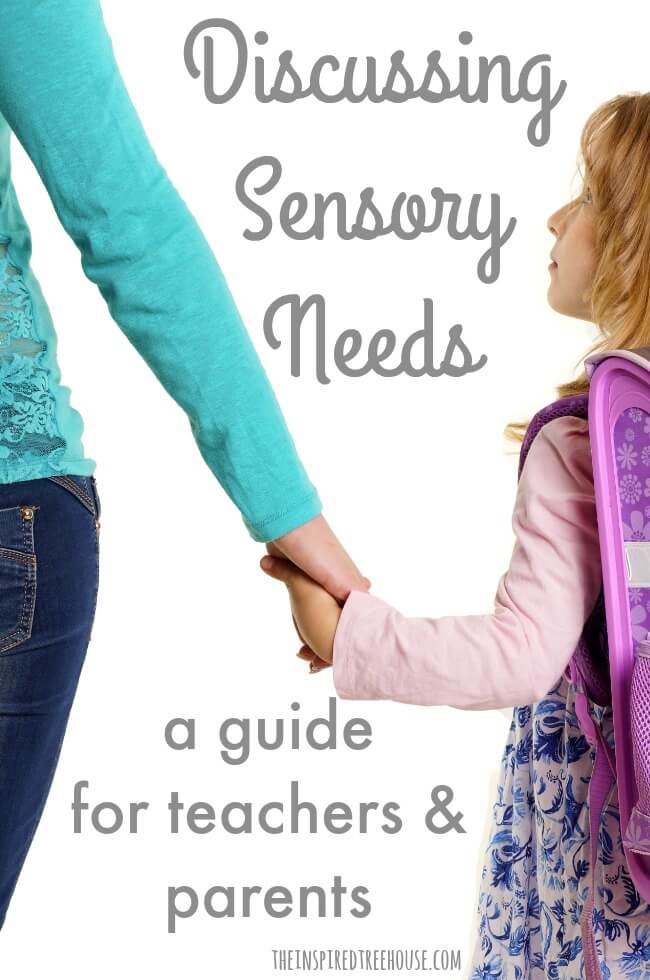This helpful guide can facilitate a positive and constructive conversation between parents and teachers about a child’s sensory issues.
It’s no mystery why school is a struggle for many kids who have sensory processing needs. In fact, school may be one of the most sensory-rich experiences of childhood.
The sound of the lawn mower outside the window, the movement and activity of the kids in the classroom, the smells of the cafeteria, the slides and swings at recess – add all of this to the pressure of academic expectations and heavy social demands and you may start to see problems.
Kids who are struggling with sensory issues in the classroom may have difficulty with regulating their behavior, paying attention, sitting still, listening to directions, and more.
Whether you are a parent of a child with sensory needs or a teacher who has concerns about a child in your class, here are some ideas for how to start a constructive conversation about addressing kids’ needs in a positive and respectful way. Read on to learn more!

RISE With Sensory Course
Are you ready to learn powerful sensory strategies to support kids’ sensory needs so they can RISE to their full potential?
Whether you’re a parent or a professional, this course is for you!
The RISE With Sensory Course is This class is AOTA approved for 7 hours (.7 CEU) and is the perfect starting point for new therapists, or refresher for experienced therapists.
Looking for a streamlined approach for working with kids with sensory concerns and for communicating clearly with parents and caregivers about sensory processing?
Click here to learn more!
Openly discussing sensory processing concerns can lead the team to create effective sensory strategies and sensory classroom ideas. Try these discussion questions to help lead the conversation:
If you are a teacher who has concerns about a child’s sensory needs, ask the parent:
1 || If they notice the same red flag behaviors at home that you’re noticing in the classroom.
2 || What works at home (calming strategies, strategies to promote attention, strategies to help regulate behavior)?
3 || What are the biggest challenges at home?
4 || Are there any patterns surrounding the child’s behavior (e.g. situations that typically cause a meltdown, ways to tell when a meltdown is coming, times when is the child most calm)?
5 || What are the child’s likes/dislikes (rewarding/comforting objects, tasks, activities, and types of interactions)?
6 || What are the child’s biggest worries or fears about school?
7 || What is the child most excited about when it comes to school?
8 || What does the morning routine and after school routine look like at home?
9 || How is the child sleeping and eating?
10 || How does the child interact with his or her siblings? Are siblings demonstrating similar behaviors?
If you are a parent who has concerns about your child’s sensory needs, ask the teacher:
1 || If they notice the same red flag sensory behaviors in the classroom that you’re noticing at home.
2 || What are the biggest challenges the child faces at school? What seems to be the most challenging environment (classroom, cafeteria, hallways, special classes like gym/music)?
3 || Which strategies have worked and which have not worked?
4 || What does the daily/weekly schedule look like? [Ask for a copy to keep at home].
5 || How is the child doing at lunch, recess, music/art/gym/library?
6 || How is the child interacting with his peers?
7 || Is the child able to follow along with classroom routines and schedules?
8 || When do you see that the child is happiest/most calm/most attentive during the day?
9 || What is the child’s biggest strength in the classroom?
10 || Tell about any specific sensory behaviors you see at home and ask if they are also present at school (e.g. chewing on clothing, rough play, sensitivity to sounds, etc.)
What did we miss? If you’re a teacher, what else would you want to know from parents of children with sensory processing needs? If you’re a parent, what are some other questions you would want to ask?


Latest posts by Claire Heffron (see all)
- Pro Tips for Conquering Toddler Separation Anxiety - April 25, 2024
- Cute Zipper Bags for Therapists - April 18, 2024
- Fairy Tale Games and Toys - April 12, 2024

